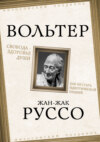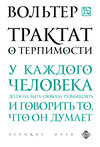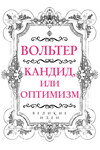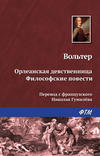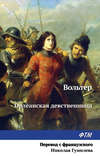Loe raamatut: «Voltaire's Romances»
PUBLISHER'S PREFACE
Voltaire wrote what the people thought, and consequently his writings were universally read. He wittily ridiculed established abuses, and keenly satirized venerable absurdities. For this he was consigned to the Bastile, and this distinction served to increase his popularity and extend his influence. He was thus enabled to cope successfully with the papal hierarchy, and laugh at the murmurs of the Vatican. The struggle commenced in his youth, and continued till his death. It was a struggle of light against darkness – of freedom against tyranny; and it ended in the triumph of truth over error and of toleration over bigotry.
Educated by the Jesuits, he early learned their methods, and his great ability enabled him to circumvent their wiles. The ceremonious presentation of his tragedy of Mahomet1 to Pope Benedict XIV., is an example of his daring audacity; – his success with the "head of the church" shows his intellectual superiority – whilst the gracious reply of "his Holiness" fitly illustrates the pontiff's vanity. From priest to bishop, from cardinal to pope, all felt his intellectual power and all dreaded his merciless satire.
He was famous as poet, dramatist, historian, and philosopher. An experienced courtier and polished writer, he gracefully and politely conquered his clerical opponents, and with courteous irony overthrew his literary critics. From his demeanor you could not judge of his thoughts or intentions, and while listening to his compliments, you instinctively dreaded his sarcasms. But venture to approach this grand seigneur, this keen man of the world, this intellectual giant, and plead in favor of human justice – appeal to his magnanimity and love of toleration – and you then had no cause to question his earnestness, no reason to doubt his sincerity. His blood boiled, says Macaulay,2 at the sight of cruelty and injustice, and in an age of religious persecution, judicial torture, and arbitrary imprisonment, he made manful war, with every faculty he possessed, on what he considered as abuses; and on many signal occasions, placed himself gallantly between the powerful and the oppressed. "When an innocent man was broken on the wheel at Toulouse, when a youth, guilty only of an indiscretion, was beheaded at Abbéville, when a brave officer, borne down by public injustice, was dragged, with a gag in his mouth, to die on the Place de Grêve, a voice instantly went forth from the banks of Lake Leman, which made itself heard from Moscow to Cadiz, and which sentenced the unjust judges to the contempt and detestation of all Europe."
"None can read these stories of the horrible religious bigotry of the day," says Alex. A. Knox, in The Nineteenth Century,3 "without feeling for Voltaire reverence and respect."
The following extract from the above named Review will explain the religious cruelty to which Macaulay refers:
"Jean Calas, a Protestant, kept a small shop in Toulouse. He had a scape-grace of a son, Marc Antoine by name, who hanged himself in his father's shop. The poor father and mother were up stairs at the time, at supper, in company with the second son. The evidence was so clear that a coroner's jury at a public-house would not have turned round upon it. The priests and the priest party got hold of it, and turned it into a religious crime. The Protestant, or Huguenot parents were charged with murdering their son for fear he should turn Catholic. The body was taken to the Hôtel de Ville, and then escorted by priests to the cathedral. The religious orders – White Penitents and others – held solemn ceremonies for the repose of Marc Antoine's soul. The churches resounded with the exhortations of the priests, informing the people what evidence was required to procure the condemnation of the Calas, and directing them to come forward as witnesses. Upon such assumptions as these horrible people could devise, the poor old man was stretched till his limbs were torn out of the sockets. He was then submitted to the question extraordinaire. This consisted in pouring water into his mouth from a horn till his body was swollen to twice its size. The man had been drowned a hundred times over, but he was still alive. He was then carried to the scaffold and his limbs were broken with an iron bar, and he was left for two hours to die. He did not then die, and so the executioner strangled him at last; but he died without confessing his crime. The man was innocent; he had no confession to make. The poor creature by his unutterable agony thus saved the lives of his wife and family, all as innocent as himself. Two daughters were thrust into a convent: a son shammed conversion to Catholicism and was released. The servant escaped into a convent. The property of the family was confiscated. The poor mother slipped away unseen. Finally, another son, who had been apprenticed to a watchmaker of Nismes, escaped to Geneva. This is a picture of France in the eighteenth century.
"Voltaire took poor young Calas into his family. He tried at once to interest the Cardinal de Bernis, the Duc de Choiseul, and others in this horrible story. He found for the widow a comfortable retreat at Paris; he employed the best lawyers he could find to give practical form to the business; he sent the daughters to join the mother. He paid all the expenses out of his own pocket. He reached the Chancellor; he made his appeal to Europe. He employed a clever young advocate M. Elie de Beaumont, to conduct the cast. The Queen of England, Frederick the Great, Catharine of Russia, were induced by Voltaire to help the Calas.
"The case of the Sirvens was well-nigh as bad as that of the Calas. Sirven lived with his wife and three daughters, all Protestants, near Toulouse. The story is so illustrative of the France of the eighteenth century, and of what Voltaire was about, that it deserves a few lines. Sirven's housekeeper, a Roman Catholic, with the assent of the Bishop of Castres, spirited away the youngest daughter, and placed her in a convent of the Black Ladies with a view to her conversion. She returned to her parents in a state of insanity, her body covered with the marks of the whip. She never recovered from the cruelties she had endured at the convent. One day, when her father was absent on his professional duties, she threw herself into a well, at the bottom of which she was found drowned. It was obvious to the authorities that the parents had murdered their child because she wished to become a Roman Catholic. They most wisely did not appear, and were sentenced to be hanged when they could be caught. In their flight the married daughter gave premature birth to a child; and Madame Sirven died in despair. It took Voltaire ten years to get this abominable sentence reversed, and to turn wrong into right.
"A Protestant gentleman, M. Espinasse, had been condemned to the galleys for life and his estate confiscated because he had given supper and lodging to a Protestant clergyman. He served twenty-three years; but in 1763 Voltaire obtained his release, and ultimately obtained back for the family a portion of their property.
"The Chevalier de la Barre was another victim. Some person or persons unknown had hacked with a knife a wooden crucifix which stood on a bridge at Abbéville over the Somme. The same night a crucifix on one of the cemeteries was bespattered with mud. The bishop of the place set to work to stir up excitement, praying for punishment 'on those who had rendered themselves worthy of the severest punishment known to the world's law.' Young De la Barre was arrested. The evidence against him was that he, with certain companions, had been known to pass within thirty yards of a procession bearing the Sacrament without taking off their hats. It was further proved in evidence that he and his friends had sung certain objectionable songs, and that not only some novels had been found in his rooms, but also two small volumes of Voltaire's Dictionnaire Philosophique. On this evidence he was sentenced to be subjected to the torture, ordinary and extraordinary; to have his tongue torn out by the roots with pincers of iron, to have his right hand cut off at the door of the principal church at Abbéville, to be drawn in a cart to the market-place, and there to be burned to death by a slow fire. The sentence was mitigated so far that he was allowed to be beheaded before he was burned. This sentence was carried out on the 1st of July, 1766. These are samples of what was occurring in France. Was there not enough to rouse indignation to fever-heat?
"When one reads such stories, even at this distance of time, he understands the French Revolution and Voltaire."
In all his writings Voltaire claimed to be religious, and was as ready to oppose with his sarcasms the agnostic or atheist, as the catholic. In speaking of Tully as a doubter, he makes Pococurante exclaim: "I once had some liking for his philosophical works; but when I found he doubted of everything, I thought I knew as much as himself, and had no need of a guide to learn ignorance."
But while Voltaire was a Theist – as Lord Brougham says,4 "without any hesitation or any intermission, a Theist" – and was a firm believer in the existence of a Creator and ruler of the universe, – he was also an avowed opponent of Catholicism; and when not engaged in the production of works which have added dignity to the literature of France, his life was passed in open warfare with the church of Rome. To this church he was as sincerely opposed as Martin Luther, and although his methods of attack and opposition differed entirely from that of the great German reformer, who shall say that his efforts have not proved even more successful? Macaulay has shown5 that no Catholic nation has become Protestant since the period of the Reformation; while on the other hand, no nation once Protestant, has returned to Catholicism. Each party has retained its own territory, and the only gain has been in favor of religious freedom. The sincere and earnest appeals of Luther, which convulsed Germany, produced but little or no effect on the versatile mind of France. But the brilliant writings of Voltaire were welcomed by his countrymen, and have not been without their influence on French civilization. And although France has not been claimed as a protestant nation, yet freethinkers have there attained great power and influence, whilst Germany, once the stronghold of Protestantism, is now the chosen and hospitable home of freethought.
Voltaire in his day was an acknowledged leader of public opinion. His thoughts engrossed the attention of the world. "Whole nations," says Quinet,6 "emulously repeat every syllable that falls from his pen: " and the lapse of time has but confirmed the verdict of his cotemporaries, that of all the great reformers, his writings are the most useful to mankind.
"If we judge of men by what they have done" says Lamartine,7 "then Voltaire is incontestably the greatest writer of modern Europe. No one has caused, through the powerful influence of his genius alone, and the perseverance of his will, so great a commotion in the minds of men; his pen aroused a world, and has shaken a far mightier empire than that of Charlemagne, the European empire of a theocracy. His genius was not force but light. Heaven had destined him not to destroy but to illuminate, and wherever he trod light followed him, for reason (which is light) had destined him to be first her poet, then her apostle, and lastly her idol."
At seventeen years of age Voltaire wrote Œdipus, at eighty-three he wrote Irène. During the intervening years he enriched the world of thought with seventy volumes of irresistible humor – of brilliant and caustic wit, – in truth, a mine of literary gems undimmed with mediocrity's prosy dullness. In fact, it was this quality of humor and mirth that made Voltaire's writings so distasteful to his opponents – so welcome to mankind. Other writers, who went far beyond Voltaire, were not considered dangerous, because they were never read. They were sincere and learned, but tedious and austere. Their disbelief was condoned by its metaphysical obscurity – their skepticism was redeemed by its unmitigated dullness. But with Voltaire the case was very different. His writings were read and appreciated by old or young, grave or gay, sage or sophist, prince or peasant. To answer him was impossible – to abuse him was thought commendable.
"Napoleon, during fifteen years," says Lamartine,8 "paid writers who degrade, vilify, and deny the genius of Voltaire; he hated his name as might must ever hate intellect; and so long as men yet cherished the memory of Voltaire – so long he felt his position was not secure." The church voluntarily joined in this work of aspersion. To the priests it was no hardship, – it was a welcome task – a labor of love. They hated the writings they could not answer – the genius they could not destroy.
"The church," says Macaulay,9 "made no defense, except by acts of power. Censures were pronounced; books were seized; insults were offered to the remains of infidel writers but no Bossuet, no Pascal, came forth to encounter Voltaire. There appeared not a single defense of the catholic doctrine which produced any considerable effect, or which is even now remembered."
"His element," says Schlosser,10 "was the lighter kind of poetry, and his fugitive verses, his sharp wit, his bold opinions, produced effects in his time, like flashes of lightning, for they illuminated at the same time the night of Jesuitical superstition, and struck and shivered to pieces the majestic towers and gothic domes of the middle ages.
"The so-called fugitive pieces alone, if he had written nothing else, would have been sufficient to secure Voltaire's immortality; for in these he is altogether in his sphere; he has only to think of the people whom he calls exclusively the world, and he can direct every spark of his genius to the production of instantaneous effect, delight his reader by his fancy, and surprise him by his wit.
"The chief aim of each one of Voltaire's small novels is the overthrow and refutation of some ruling opinion, and this object is admirably attained by the story itself, and by weaving in sarcasms, because this rendered all reply and refutation impossible. Seriousness could never have reached the readers of these novels, or would immediately weary them; and every attempt to rival Voltaire in a strain of pleasantry and satire, would have been a folly.
"In Zadig he shows palpably and obviously how entirely devoid of reason and taste the usual moral and edifying considerations upon the way of Providence, upon a God who thinks, counsels, acts, and conducts the affairs of the world as a man, must appear to the bold scoffer. Voltaire, we would say, confined and limited the doctrine of an immediate guidance of human affairs by the hand of Divine Providence, wholly to the church and to the faith of the people; he roofed it out of higher life and out of science by means of his dreadful ridicule. By his narratives he made that obvious, which indeed is easily made palpable enough, because it is undeniable, that the theory of a palpable guidance of human affairs by an ever-manifesting interposing Providence, may be just as easily refuted as proved by history and experience. In Memnon is shown, in an admirable manner, how the multitude are enamoured of their prudence, and laugh at nature and its feelings. In the Ingenu, the witty man yields himself up wholly to his humor and to accident, and brings forth a rich abundance of wit and flashes of genius with respect to the most various subjects."
"Voltaire had the genius of criticism," says Lamartine,11 "that power of raillery which withers all it overthrows. He had made human nature laugh at itself, had felled it low in order to raise it, had laid bare before it all errors, prejudices, iniquities, and crimes of ignorance; he had urged it to rebellion against consecrated ideas, not by the ideal but by sheer contempt. Destiny gave him eighty years of existence, that he might slowly decompose the decayed age; he had the time to combat against time, and when he fell he was the conqueror.
"Such were the elements of the revolution in religious matters. Voltaire laid hold of them, at the precise moment, with that coup d'œil of strong instinct which sees clearer than genius itself. To an age young, fickle, and unreflecting, he did not present reason under the form of an austere philosophy, but beneath the guise of a facile freedom of ideas, and a scoffing irony. He would not have succeeded in making his age think, he did succeed in making it smile. He never attacked it in front, nor with his face uncovered, in order that he might not set the laws in array against him; and to avoid the fate of Servetus, he, the modern Æsop, attacked under imaginary names the tyranny which he wished, to destroy. He concealed his hate in history, the drama, light poetry, romance, and even in jests. His genius was a perpetual allusion, comprehending all his age, but impossible to be seized on by his enemies. He struck, but his hand was concealed. Yet the struggle of a man against a priesthood, an individual against an institution, a life against eighteen centuries, was by no means destitute of courage.
"There is an incalculable power of conviction and devotion of idea, in the daring of one against all. To brave at once, with no other power than individual reason, with no other support than conscience, human consideration, that cowardice of the mind, masked under respect for error; to dare the hatred of earth and the anathema of heaven, is the heroism of the writer. Voltaire was not a martyr in his body, but he consented to be one in his name, and devoted it during his life and after his death. He condemned his own ashes to be thrown to the winds, and not to have either an asylum or a tomb. He resigned himself even to lengthened exile in exchange for the liberty of a free combat. He isolated himself voluntarily from men, in order that their too close contact might not interfere with his thoughts.
"At eighty years of age, feeble, and feeling his death nearly approaching, he several times made his preparations hastily, in order to go and struggle still, and die at a distance from the roof of his old age. The unwearied activity of his mind was never checked for a moment. He carried his gaiety even to genius, and under that pleasantry of his whole life we may perceive a grave power of perseverance and conviction. Such was the character of this great man. The enlightened serenity of his mind concealed the depth of its workings: under the joke and laugh his constancy of purpose was hardly sufficiently recognized. He suffered all with a laugh, and was willing to endure all, even in absence from his native land, in his lost friendships, in his refused fame, in his blighted name, in his memory accursed. He took all – bore all – for the sake of the triumph of the independence of human reason."
The manners and customs of the eighteenth century differ widely from those of the nineteenth. Certain words and phrases that were then in common use are now wisely suppressed. Lecky says very truly,12 that "a Roman of the age of Pliny, an Englishman of the age of Henry VIII., and an Englishman of our own day, would all agree in regarding humanity as a virtue, and its opposite as a vice; but their judgments of the acts which are compatible with a humane disposition would be widely different."
The enemies of freethought have taken advantage of this fact – this change in modes of expression – this refinement in literature – to defame the memory of Voltaire. They denounce La Pucelle or The Maid of Orleans for language and expressions, formerly popular in court circles and sanctioned by the nobility and ladies of fashion, but which, happily, have now become obsolete. They judge the license of the eighteenth century – the license and profligacy which accompany ecclesiasticism and monasticism – by nineteenth century standards. If the same rule were applied to other writers, none would have cause to complain. But, unfortunately, an exception has been unjustly made in favor of the language employed by historians like Moses and Solomon, by poets like Shakspeare and Pope, by theologians like Rabelais and Swift, by novelists like Fielding and Smollett. In short, immodest language cannot be redeemed by wit, by learning, or by pretended revelation, and should always and invariably be suppressed; but writers should be judged by the manners and customs of their age, and not by modern standards. There are many passages in the old classic authors that were formerly considered in good taste, which cannot now be commended. Still, the gold outweighs the dross, and we should remember the laxity and licentiousness of the times in which those books were written.
The romances and tales in this publication have been selected for their graceful and sprightly wit, as well as genial humor and keen satire; and further, because they are free from even a suspicion of impropriety. They each teach a lesson of wisdom and morality – they teach courage, fortitude and resignation, and, what is perhaps of even greater importance, they also tend to free the mind from the baneful errors of priestcraft and superstition.
"The most interesting adventures are related to no sort of purpose," says Voltaire in one of his essays, "if they do not convey, at the same time, a description of manners. And even this is but a frivolous amusement, if that description does not contribute to inspire us with sentiments of virtue. I dare assert that, from the Henriade to Zara and down to the Chinese tragedy of The Orphan of Tchao such was always the aim I proposed, and the principle that conducted me. In the history of the age of Louis the fourteenth, I have celebrated my king and country, without flattering either. In these endeavors have I spent above forty years. But here is the advice of a Chinese philosopher, whose writings are translated into Spanish, by the famous Navarette:
"'If you write a book, show it only to your friends. Dread the public and your brother authors. They will embitter your expressions, misrepresent your meaning, and impute to you, what you never thought of. Calumny, which has an hundred mouths, will open them against you; and truth, which is silent, will remain with you.'"
It has been said of Voltaire that he was "not only just, but generous in his dealings with others. With open purse and open heart, helpful to all who approached him. Collini, his secretary, said he was a miser only of his time, which was always usefully employed. But we are also told that there was one person to whom he could not even deny his time – it was Mademoiselle de Varicourt —Belle-et-Bonne– whom he had adopted, and who was afterward married to the Marquis de Villette. "She could never disturb him," says A.A. Knox, "not even when he was giving the last touches to Irène. If he were in a passion with anybody else, and she appeared in the room, he was at once gentle and calm. There is something very affecting in the old man's love and tenderness for this young girl."
After the success of the French Revolution, to which the writings of Voltaire had so greatly contributed, when the National Assembly ordered the removal of his remains to the Pantheon, to repose between the ashes of Descartes and Mirabeau – when France honored herself in honoring the great philosopher – it was Belle-et-Bonne– in the full splendor of her majestic beauty – her heart overflowing with tenderness and gratitude – her eyes dimmed with pathetic tears – who placed with loving hands on the bier of her noble benefactor the wreath of filial affection – the grandest tribute that humanity can bestow.
PETER ECKLER.
New York, Jan. 28, 1885.














